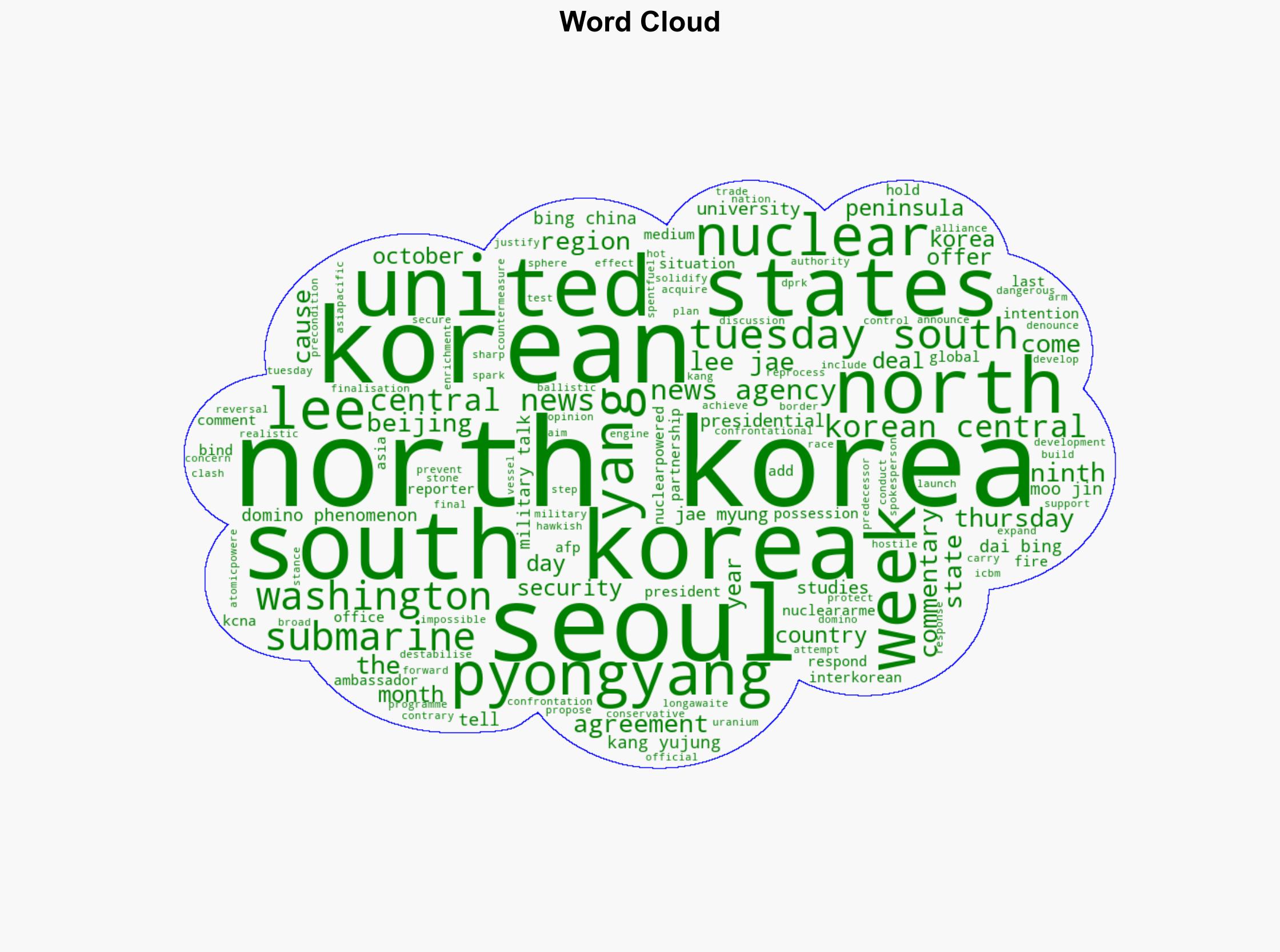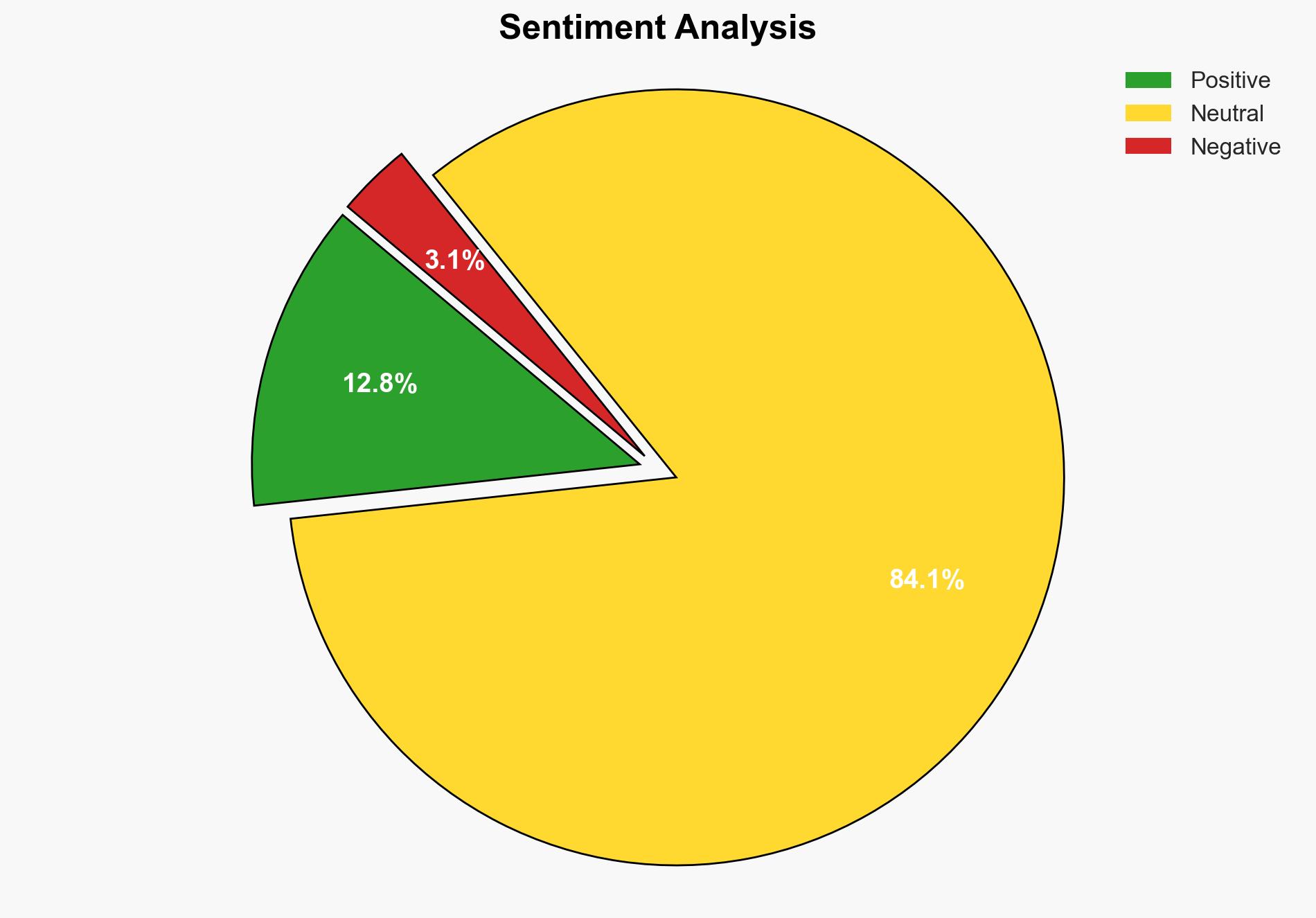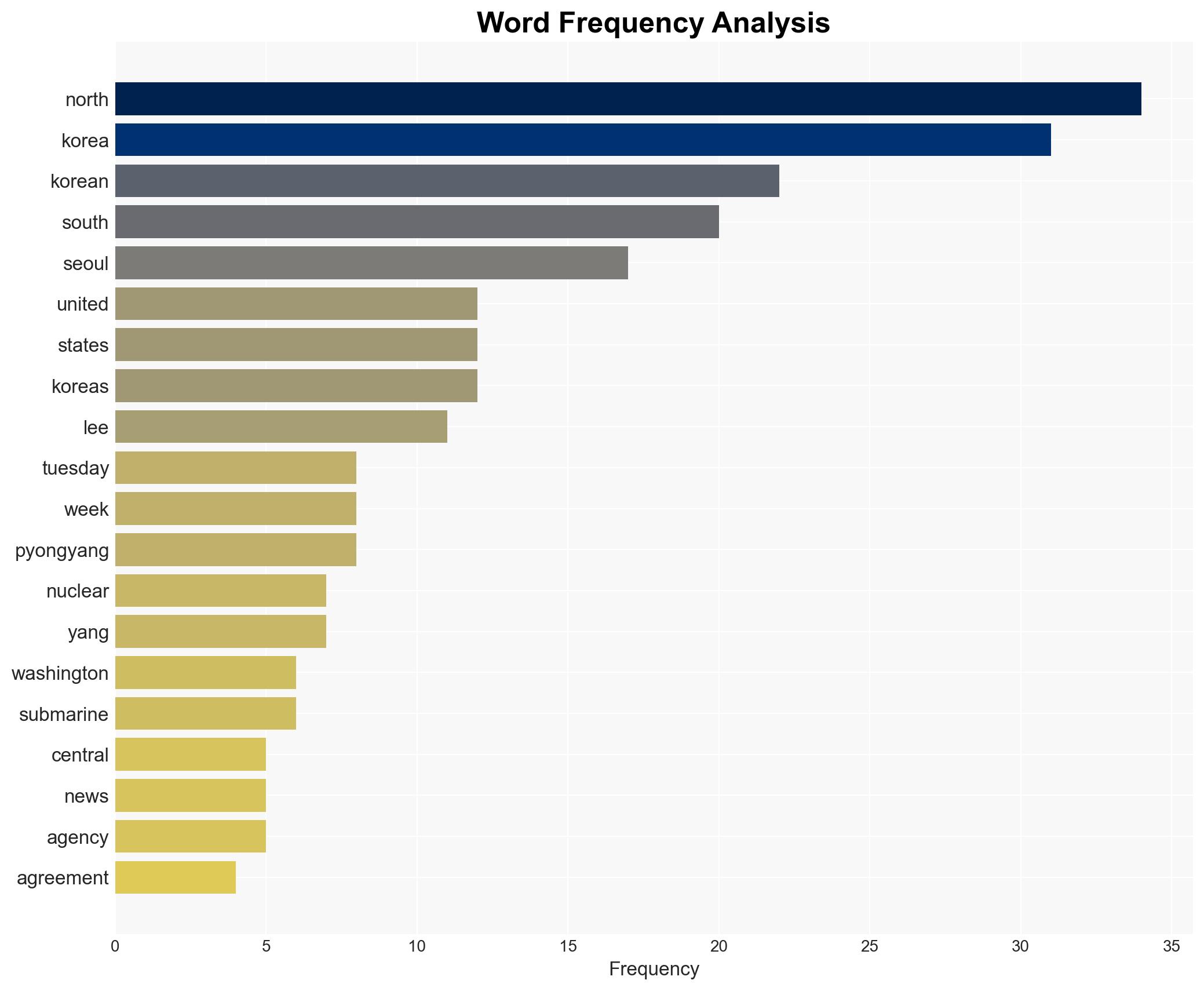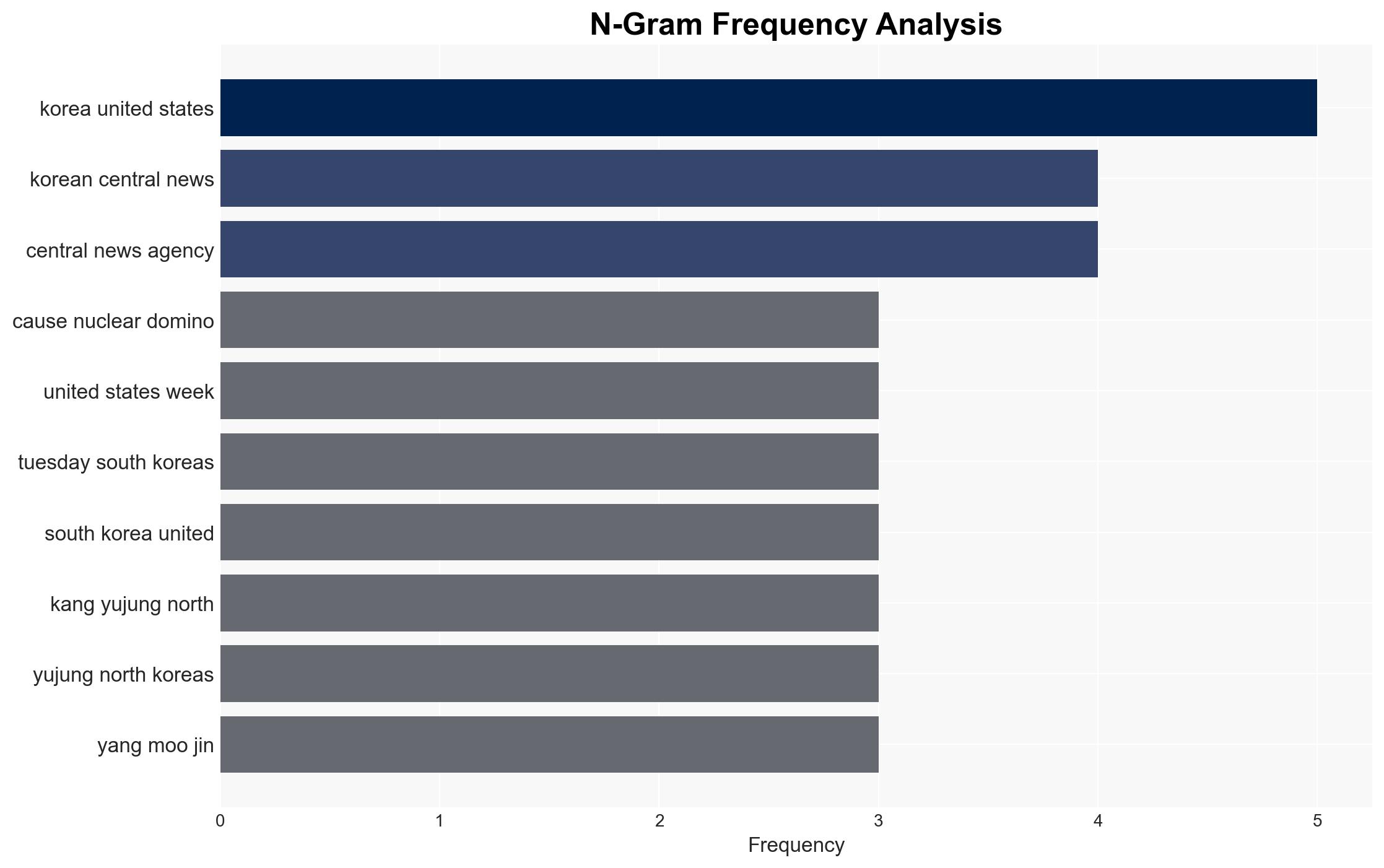North Korea says Seoul-US sub deal will trigger ‘nuclear domino’ effect – Hurriyet Daily News
Published on: 2025-11-18
AI-powered OSINT brief from verified open sources. Automated NLP signal extraction with human verification. See our Methodology and Why WorldWideWatchers.
Intelligence Report:
1. BLUF (Bottom Line Up Front)
With moderate confidence, the most supported hypothesis is that North Korea’s denunciation of the Seoul-US nuclear submarine deal is primarily a strategic maneuver to justify its own military advancements and to exert pressure on South Korea and the United States. The recommended action is to enhance diplomatic engagement with regional stakeholders, including China, to mitigate escalation and reinforce non-proliferation norms.
2. Competing Hypotheses
Hypothesis 1: North Korea’s statements are a genuine expression of security concerns, fearing that the nuclear submarine deal will destabilize the region and trigger an arms race.
Hypothesis 2: North Korea’s denunciation is primarily a strategic maneuver to justify its own military advancements and to exert pressure on South Korea and the United States.
Assessment: Hypothesis 2 is more likely due to North Korea’s historical pattern of using external developments to rationalize its military programs and its strategic interest in maintaining a narrative of external threat to justify internal policies.
3. Key Assumptions and Red Flags
Assumptions: It is assumed that North Korea’s statements are at least partially influenced by its strategic objectives rather than purely defensive concerns. Additionally, it is assumed that China will continue to play a moderating role in regional tensions.
Red Flags: Potential deception indicators include North Korea’s timing of statements coinciding with its own military tests, suggesting a possible diversion tactic. The lack of concrete evidence of an immediate arms race escalation is a gap in the current analysis.
4. Implications and Strategic Risks
The primary strategic risk is the potential for increased military tensions on the Korean Peninsula, which could lead to miscalculations or accidental confrontations. Politically, the deal could strain inter-Korean relations and complicate diplomatic efforts. Economically, regional instability could affect trade and investment flows. Informationally, North Korea may use this narrative to bolster domestic support and justify further military developments.
5. Recommendations and Outlook
- Engage in multilateral dialogues involving China, South Korea, and the United States to address security concerns and reinforce non-proliferation commitments.
- Enhance intelligence-sharing mechanisms to monitor North Korea’s military developments and intentions.
- Best-case scenario: Diplomatic engagement leads to de-escalation and renewed talks on denuclearization.
- Worst-case scenario: Escalation leads to military confrontations and a regional arms race.
- Most-likely scenario: Continued rhetorical posturing by North Korea with limited immediate escalation.
6. Key Individuals and Entities
Lee Jae Myung – South Korean President
Kang Yu-jung – South Korean Presidential Spokesperson
Yang Moo-jin – Professor at the University of North Korean Studies
Dai Bing – China’s Ambassador to Seoul
7. Thematic Tags
Regional Focus, Regional Focus: Korean Peninsula, Asia-Pacific
Structured Analytic Techniques Applied
- Causal Layered Analysis (CLA): Analyze events across surface happenings, systems, worldviews, and myths.
- Cross-Impact Simulation: Model ripple effects across neighboring states, conflicts, or economic dependencies.
- Scenario Generation: Explore divergent futures under varying assumptions to identify plausible paths.
Explore more:
Regional Focus Briefs ·
Daily Summary ·
Support us





